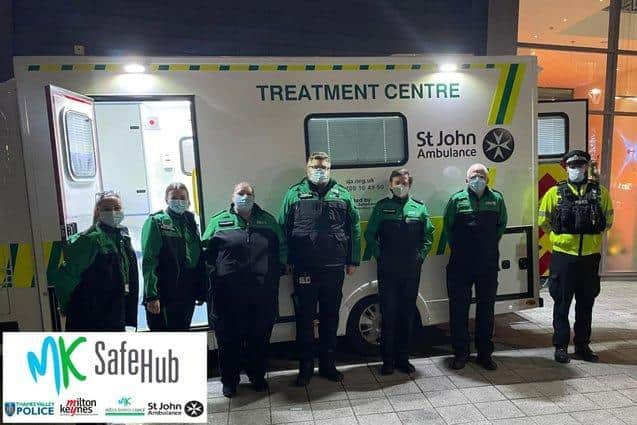Evidence of drink spiking in Milton Keynes is presented to Parliament
and live on Freeview channel 276
St John Ambulance chiefs this week met with MPs in Parliament to give evidence of people having their drinks spiked in Milton Keynes and elsewhere.
The charity collected data from its night time 'Safe Hub' project in MK and 12 other locations over the past two months.
Advertisement
Advertisement
It showed that 7% of all medical incidents they had dealt with were suspected spikings.
Of these, 32 involved females, 10 involved males and there were two patients who preferred not to state their gender.
More than 70% of the incidents involved 18-25-year-olds, while 9% involved under 18s.
The suspected spikings were found to happen at any time throughout the night, but most incidents are reported between 9pm and 3am
Advertisement
Advertisement
St John's night-time projects support people’s medical needs in town and city centres, responding to illness and injury and relieving pressure on the NHS. In Central Milton Keynes, they run a regular Safe Hub, complete with a mini medical treatment centre,


The hub has an onsite treatment centre, which can deliver emergency first aid and support the safeguarding of vulnerable people.
The charity met with the Home Affairs Select Committee in parliament yesterday (Wednesday).
Jade Quittenton, Community Operations Manager at St John, said: “Most of our night-time economy services have reported worrying incidents of spiking and, while this is very early data and the sample size is small, it indicates this is happening across the country with young women at greatest risk.”
Advertisement
Advertisement
She added: “St John Ambulance primarily provides a safe space for those that may have been spiked free from judgement.
“Our first aiders and healthcare staff will provide any obvious treatments before referring individuals to hospital for further investigations and a period of safe observation.”
Spiking can only be confirmed once laboratory tests have been carried out which means cases can only be recorded as suspected, based on information given though the history-taking process, in conjunction with abnormal clinical observations.
During yesterday's meeting Dr Adrian Boyle, vice president of the Royal College of Emergency Medicine, praised the charity’s contribution.
Advertisement
Advertisement
“We are enormously supportive of third sector support, particularly St John Ambulance,” he said.
“The work that they do out of hospital in reducing unnecessary conveyances to hospital is valuable and recognised to be extremely helpful to emergency partners”
If you would like to volunteer with St John Ambulance visit their website here.